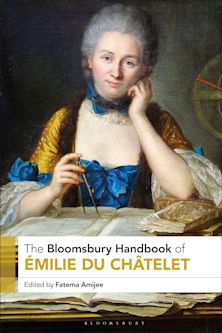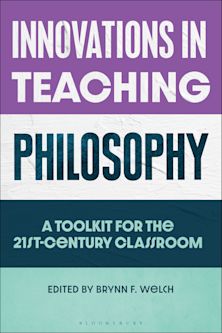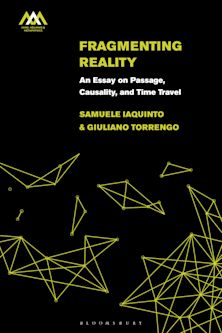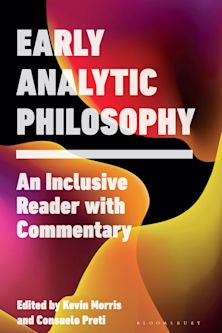- Home
- ACADEMIC
- Philosophy
- Analytic Philosophy
- The Radial Method of the Middle Wittgenstein
The Radial Method of the Middle Wittgenstein
In the Net of Language
The Radial Method of the Middle Wittgenstein
In the Net of Language
You must sign in to add this item to your wishlist. Please sign in or create an account
Description
Spanning the period between Wittgenstein's return to Cambridge in 1929 and the first version of Philosophical Investigations in 1936, Piotr Dehnel explores the middle stage in Ludwig Wittgenstein's philosophical development and identifies the major issues which engrossed him, including phenomenology, philosophy of mathematics and philosophy of language. Contrary to the dominant perspective, Dehnel argues that this period was intrinsically different from the early and late stages and should not be viewed as a mere transitional phase.
The distinctiveness of Wittgenstein's middle work can be seen in his philosophical thinking as it unfolds in a non-linear trajectory: thoughts do not follow upon each other, ideas do not appear sequentially one by one, and insights do not form a straight chain. Dehnel portrays the diffused and multifarious quality of Wittgenstein's middle thinking, enabling readers to form a more comprehensive view of his entire philosophy and acquire a better grasp of his conceptual trajectory, complete with the intricacies and challenges that it poses.
Table of Contents
1. The Phenomenological Turn
2. Verification: 1929-1932
3. Wittgenstein's Critique of Frege in the Notes of 1929-1932
4. 'A Clever Man got Caught in this Net of Language': Wittgenstein's Attack on Set Theory
5. The Big Typescript as a Work of the Middle Period
6. P.S. Understanding, Expecting, Wishing
7. Magic, Rituals and Philosophy: Wittgenstein on Frazer's The Golden Bough
8. Wittgenstein as a Philosopher of Culture
Bibliography
Index
Product details

| Published | 17 Nov 2022 |
|---|---|
| Format | Ebook (PDF) |
| Edition | 1st |
| Extent | 232 |
| ISBN | 9781350257344 |
| Imprint | Bloomsbury Academic |
| Publisher | Bloomsbury Publishing |
About the contributors
Reviews
-
The book sheds an interesting new light on interpretations of Ludwig Wittgenstein's philosophy as it offers one of the first explorations of his concepts between the Tractatus and the Philosophical Investigations. The author argues that, rather than developing in a linear sequence from insight to insight and from idea to idea, Wittgenstein's thought in the middle period expands radially, unfolding in several directions at the same time. A must-read for Wittgenstein researchers, the book is certainly of profound interest to humanities scholars and social scientists alike.
Leszek Koczanowicz, Professor of Philosophy and Cultural Studies, SWPS University of Social Sciences and Humanities, Poland
-
This book offers broad hermeneutic explanations of Wittgenstein's writings from 1929 to 1936. They are based on a thorough knowledge of the source material, which they place in the context of his thought and its philosophical environment. I am impressed with the scientific merit of the present work.
Herbert Hrachovec, Associate Professor at the Institute for Philosophy, University of Vienna, Austria

ONLINE RESOURCES
Bloomsbury Collections
This book is available on Bloomsbury Collections where your library has access.



































